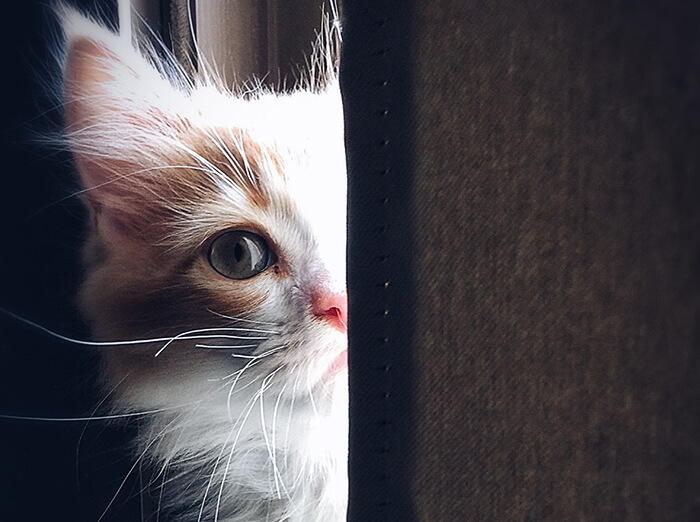Preventing Cat Diseases With Vaccinations
South Cranbourne Veterinary Surgery
Preventing Cat Diseases With Vaccinations
South Cranbourne Veterinary Surgery
How do vaccines work?
Vaccines contain small quantities of “modified live” or “killed” viruses, bacteria or other disease-causing organisms. When administered, they stimulate your cat’s immune system to produce disease-fighting cells and proteins – or antibodies – to protect against disease.
When should my cat be vaccinated?
A kitten gains immunity from its mother’s milk and this provides protection for the first stage of their life. This protection then starts to diminish after 6 weeks of age and vaccination is required. A kitten vaccination course is tailored to your cat’s individual requirements. Thereafter, your cat will require repeat vaccination at regular intervals for the rest of his or her life.
What diseases should my cat be vaccinated against?
At South Cranbourne Vet Surgery we vaccinate against the most common, highly contagious diseases which cause serious illness. The routine vaccination protects against Feline Panleucopaenia, Feline Viral Rhinotracheitis and Feline Calicivirus, while we also strongly recommend vaccinating against Feline Immunodeficiency Virus (FIV). Vaccination against Feline Leukaemia and Feline Chlamydiosis is also available. The Feline Chlamydiosis vaccine is not routinely used as it causes vaccine associated illness and does not prevent infection and ‘carrier’ status, just reduces the severity of the treatable disease. The Feline Leukaemia vaccine can also cause vaccine associated issues and has a low incidence in household cats, therefore it is not part of our routine vaccinations. Cases can be discussed on an individual basis with the veterinarian.
Feline Viral Rhinotracheitis (“Cat Flu”)
This virus causes upper respiratory tract infection with symptoms of fever, sneezing, coughing, eye and nasal discharge and loss of appetite. The virus is spread between cats and is highly contagious. It is a serious disease in all cats but particularly in kittens. Even if a cat recovers, it can remain a carrier for life.
Feline Calicivirus (“Cat Flu”)
Calicivirus is another major cause of upper respiratory-tract infection, otherwise known as cat-flu, in cats. The severity of clinical signs depends on the strain of virus involved but commonly involves fever, ulcers and blisters on the tongue and pneumonia. Treatment of this disease can be difficult. Even if the cat does recover from infection it remains a ‘carrier’ for life. ‘Carrier’ cats continue to spread the disease to other cats as well as experience chronic sneezing and runny eyes. Vaccination is the only effective method of prevention.
Feline Panleucopaenia
Feline Panleucopenia is a potentially fatal disease caused by a highly resistant virus. The virus itself can survive up to 12 months outside a cat’s body. Symptoms can include listlessness, diarrhoea, vomiting, severe dehydration and fever. Again, treatment is very difficult and cats who do recover continue to infect other animals. Vaccination is a highly effective prevention.
Feline Immunodeficiency Virus – FIV (Feline AIDs)
Feline Immunodeficiency Virus (FIV) severely weakens the immune system of cats, putting them at high risk of life-threatening infections and cancer. There is no cure or treatment for the virus or condition that it causes (Feline AIDs); only prevention in the form of the vaccine. FIV is spread by bite wounds from fighting with other cats, therefore any cat which goes outside, especially male cats and un-desexed cats should be vaccinated. Please note, while Feline AIDs is very similar to human AIDs, it is NOT able to infect people and will not cause AIDs in humans.
Feline Leukaemia (FeLV)
Feline Leukaemia Virus destroys the body’s immune system, making infected cats prone to infections, as well as cause cancerous conditions such as leukaemia. Infected cats may show no signs of illness for months or years but is still able to infect other cats. Testing is available to determine the FeLV status of your cat.
Feline Chlamydiosis
Feline Chlamydiosis is a bacteria which causes respiratory disease, and is mostly seen in multi-cat environments. It causes a local infection of the mucous membranes of the eyes but may also involve the lungs.
How effective is vaccination?
Vaccinations cannot be 100% guaranteed but when given as directed by your veterinarian, and in conjunction with proper nutrition and sanitation, vaccination provides your cat with its best defence against these serious diseases.

Opening Hours
Monday: 8am–7pm
Tues-Thurs: 8am–6pm
Friday: 8am–7pm
Saturday: 8am–12pm
Sunday: Closed
Address
82 Earlston Circuit, Cranbourne VIC 3977

